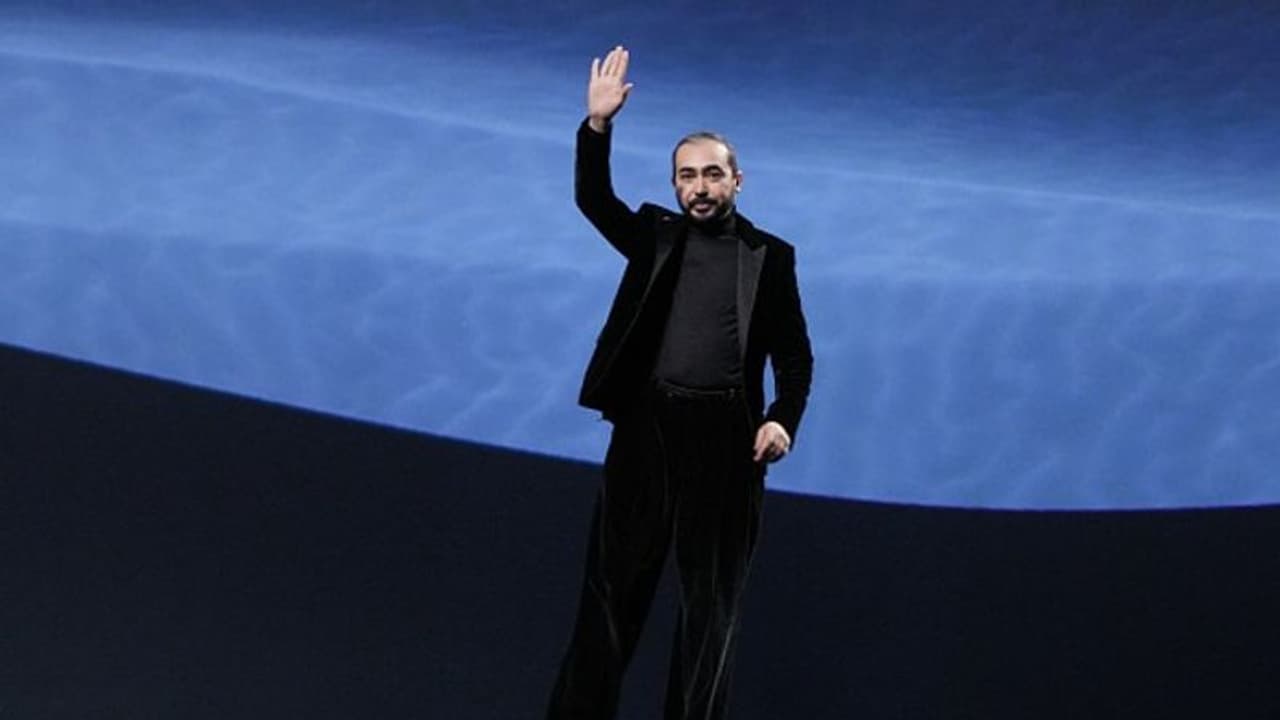The Saudi fashion industry is just one facet of a broader strategy pursued by Crown Prince Mohammed bin Salman to diversify the country's economy and foster social changes.
In a remarkable milestone for Saudi Arabia's cultural evolution, Mohammed Ashi, a Saudi designer, made his debut at Paris Fashion Week, marking a significant moment in the kingdom's push into the global fashion scene. Ashi, known for dressing top celebrities, described this achievement as the pinnacle of his career. The event coincided with Saudi Arabia's announcement of its own fashion week scheduled for October, as the country aims to tap into new retail opportunities valued at $32 billion annually.

Also read: Saudi documenting Hadith to stop misuse by Islamic radicals, terrorists
The Saudi fashion industry is just one facet of a broader strategy pursued by Crown Prince Mohammed bin Salman to diversify the country's economy and foster social changes. This approach involves redirecting the nation's oil wealth towards investments in movies, sports, video games, tourism, and other cultural endeavors. While skeptics initially viewed these initiatives as mere smokescreens to deflect attention from human rights concerns, the reforms have surpassed expectations by introducing substantial and transformative changes.
Yousef Akbar, a fashion designer who established his brand in Australia and has dressed renowned celebrities like Nicole Kidman and Rita Ora, expressed his astonishment at the magnitude of the transformation. He never anticipated such progress while growing up, and starting his fashion label in Australia seemed to determine the course of his career. However, he now operates his business from Jeddah, highlighting the growing opportunities within Saudi Arabia's burgeoning fashion scene.
"For the first two years, I almost didn't believe it was real, but then I realised, wow, it IS real," said 37-year-old Yousef Akbar, who began his eponymous fashion label in Australia in 2017.
"I really never thought when I was growing up that this would happen. When I started my brand in Australia, I thought my whole life would be there since I'm a fashion designer," Akbar added.
Also read: Why Saudi Arabia's oil production cuts are a risky gamble
The Saudi Fashion Commission aims to capitalize on newfound freedoms regarding public dress and the flourishing private sector, projecting a remarkable 48 percent surge in retail sales to $32 billion between 2021 and 2025. In line with this vision, the commission has launched the Saudi 100 brands program, fostering local designers and nurturing a homegrown industry.
Burak Cakmak, the CEO of the Saudi Fashion Commission, believes that the country's rich heritage and existing brand presence lay the groundwork for a thriving fashion industry, dispelling the notion that Saudi Arabia is starting from scratch.
"Just because the country wasn't exposed to the rest of the world doesn't mean they are starting now," he told AFP in Paris. "I had an event for a brand this week that's been running since the 70s."
It is important to acknowledge that LGBTQ individuals face severe repression in Saudi Arabia, as the country criminalizes same-sex relations. Despite this, the authorities are apparently turning a blind eye to the influence of queer designers and couturiers within the fashion industry.
Susanne Koelbl, author of "Behind the Kingdom's Veil," suggests that as long as individuals maintain loyalty to the ruler and their families approve, the authorities are choosing to overlook these aspects.
"Maybe you can't dance naked on the table, but almost anything else is possible now, as long as your family is OK with it and you are loyal to the ruler," Koelbl told AFP.
With opposition largely repressed and religious leaders stripped of power, Crown Prince Mohammed bin Salman faces few obstacles in implementing his well-planned and long-scheduled reform agenda, which is dramatically reshaping Saudi society. This process of change brings new and significant opportunities, particularly for women, who are experiencing a shift in societal roles and expectations.
"It's a well-planned, long-scheduled reform process which is about to change the society completely," said Koelbl. "The Saudi people don't tend to be revolutionary and for the vast majority there are indeed new and big opportunities now, especially for women."
For those benefiting from these reforms, the excitement is palpable and inspiring. Witnessing the realization of what was once deemed impossible serves as a powerful motivation for individuals like Yousef Akbar, who see tremendous potential for their own businesses.
"It sounds cliched, but seeing something happen that we all thought was impossible is very inspiring for my own business," said Akbar.
Also read: Arab youth sees India as stronger ally than the US: New survey
Saudi Arabia's presence at Paris Fashion Week and its broader efforts to embrace cultural transformation are indicative of a nation striving to redefine itself on the global stage. As the kingdom continues to invest in various aspects of global culture, it signals a desire to not only diversify its economy but also to foster social progress and create opportunities for its people.
